
The death of the eldest prince, and how the middle brother came to his funeral for the youngest was confined to his bed by illness; and how the King treated the middle brother with great affection, so that he too was crippled (captivated) by his kindness; (and how) he remained with the King, and a hundred thousand spoils (precious gifts), from the unseen and visible worlds, were conferred upon him by the fortune and favour of the King; with an exposition of some part thereof. متوفی شدن بزرگین از شهزادگان و آمدن برادر میانین به جنازهی برادر کی آن کوچکین صاحبفراش بود از رنجوری و نواختن پادشاه میانین را تا او هم لنگ احسان شد ماند پیش پادشاه صد هزار از غنایم غیبی و غنی بدو رسید از دولت و نظر آن شاه مع تقریر بعضه
کوچکین رنجور بود و آن وسط بر جنازهی آن بزرگ آمد فقط
The youngest (brother) was ill, and (so) the middle one came alone to the funeral of the eldest.
شاه دیدش گفت قاصد کین کیست که از آن بحرست و این هم ماهیست
(When) the King espied him, he said with a purpose, “Who is this?—for he is of that sea, and he too is a fish.”
پس معرف گفت پور آن پدر این برادر زان برادر خردتر
Then the announcer said, “He is a son of the same father: this brother is younger than that (deceased) brother.”
شه نوازیدش که هستی یادگار کرد او را هم بدان پرسش شکار
The King greeted him affectionately, saying, “Thou art a keepsake (from thy brother to me)”; and by this enquiry (gracious attention) made him too his prey.
از نواز شاه آن زار حنیذ در تن خود غیر جان جانی بدیذ
In consequence of the kindness shown (to him) by the King, that wretched man, (who was) roasted (in the fire of love), found in his body a soul other than the (animal) soul.
در دل خود دید عالی غلغله که نیابد صوفی آن در صد چله
He felt within his heart a sublime emotion which the Súfí does not experience during a hundred chilas.
عرصه و دیوار و کوه سنگبافت پیش او چون نار خندان میشکافت
Court-yard and wall and mountain woven of stone seemed to split open before him like a laughing (bursting) pomegranate.
ذره ذره پیش او همچون قباب دم به دم میکرد صدگون فتح باب
One by one, the atoms (of the universe) were momently opening their doors to him, like tents, in a hundred diverse ways.
باب گه روزن شدی گاه شعاع خاک گه گندم شدی و گاه صاع
The door would become now the window, now the sunbeams; the earth would become now the wheat, now the bushel.
در نظرها چرخ بس کهنه و قدید پیش چشمش هر دمی خلق جدید
In (men’s) eyes the heavens are very old and threadbare; in his eye ’twasa new creation at every moment.
روح زیبا چونک وا رست از جسد از قضا بی شک چنین چشمش رسد
When the beauteous spirit is delivered from the body, no doubt an eye like this will be conferred upon it by (Divine) destiny.
صد هزاران غیب پیشش شد پدید آنچ چشم محرمان بیند بدید
A hundred thousand mysteries were revealed to him: he beheld that which the eyes of the initiated behold.
آنچ او اندر کتب بر خوانده بود چشم را در صورت آن بر گشود
He opened (the inward) eye (and gazed) on the (ideal) form of that which he had (only) read in books.
از غبار مرکب آن شاه نر یافت او کحل عزیزی در بصر
From the dust of the mighty King’s horse he obtained a precious collyrium for his eyesight.
برچنین گلزار دامن میکشید جزو جزوش نعره زن هل من مزید
In such a garden of flowers he was trailing his skirt, while every part of him was crying, “Is there any more?”
گلشنی کز بقل روید یک دمست گلشنی کز عقل روید خرمست
The flowers that grow from plants are (living but) a moment; the flowers that grow from Reason are (ever) fresh.
گلشنی کز گل دمد گردد تباه گلشنی کز دل دمد وافر حتاه
The flowers that bloom from earth become faded; the flowers that bloom from the heart oh, what a joy!
علمهای با مزهی دانستهمان زان گلستان یک دو سه گلدسته دان
Know that (all) the delightful sciences known to us are (only) two or three bunches of flowers from that Garden.
زان زبون این دو سه گل دستهایم که در گلزار بر خود بستهایم
We are devoted to these two or three bunches of flowers because we have shut the Garden-door on ourselves.
آنچنان مفتاحها هر دم بنان میفتد ای جان دریغا از بنان
Alas, O (dear) soul, (that) on account of (thy greed for) bread such (admirable) keys are always dropping from thy fingers!
ور دمی هم فارغ آرندت ز نان گرد چارد گردی و عشق زنان
And if for a moment thou art relieved from preoccupation with bread, thou danglest about the chádar and (givest thyself up to) thy passion for women;
باز استسقات چون شد موجزن ملک شهری بایدت پر نان و زن
And then, when (the sea of) thy dropsy (lust) breaks into billows, thou must needs have under thy sway a (whole) city full of bread and women.
مار بودی اژدها گشتی مگر یک سرت بود این زمانی هفتسر
(At first) thou wert (only) a snake: (now) indeed thou hast become a dragon. Thou hadst (only) one head: now thou hast seven heads.
اژدهای هفتسر دوزخ بود حرص تو دانهست و دوزخ فخ بود
Hell is a seven-headed dragon: thy greed is the bait and Hell the snare.
دام را بدران بسوزان دانه را باز کن درهای نو این خانه را
Pull the snare to pieces, burn the bait, open new doors in this (bodily) tenement!
چون تو عاشق نیستی ای نرگدا همچو کوهی بیخبر داری صدا
O sturdy beggar, unless thou art a lover (of God), thou hast (only) an echo, like the unconscious mountain.
کوه را گفتار کی باشد ز خود عکس غیرست آن صدا ای معتمد
How should the mountain possess a voice of its own? The echo is reflected from another, O trusty man.
گفت تو زان سان که عکس دیگریست جمله احوالت به جز هم عکس نیست
In the same fashion as thy speech is the reflexion of another, so all thy feelings are nothing but a reflexion.
خشم و ذوقت هر دو عکس دیگران شادی قواده و خشم عوان
Both thy anger and thy pleasure are (only) reflected from others, (like) the joy of the procuress and the rage of the night-patrol.
آن عوان را آن ضعیف آخر چه کرد که دهد او را به کینه زجر و درد
Pray, what (harm) did that poor fellow do to the night-patrol that he should punish and torment him in revenge?
تا بکی عکس خیال لامعه جهد کن تا گرددت این واقعه
How long (wilt thou follow) the glittering phantom reflected (from another)?Strive to make this (experience) actual for thyself,
تا که گفتارت ز حال تو بود سیر تو با پر و بال تو بود
So that thy words will be (prompted) by thy immediate feelings, and thy flight will be made with thine own wings and pinions.
صید گیرد تیر هم با پر غیر لاجرم بیبهره است از لحم طیر
Tis with alien feathers that the arrow captures its prey; consequently it gets no share of the bird’s flesh;
باز صید آرد به خود از کوهسار لاجرم شاهش خوراند کبک و سار
(But) the falcon brings its quarry from the mountains itself; consequently the king lets it eat partridge and starling.
منطقی کز وحی نبود از هواست همچو خاکی در هوا و در هباست
The speech that is not (derived) from (Divine) inspiration springs from self-will: it is like dust (floating) in the air and among the motes (in the sunbeams).
گر نماید خواجه را این دم غلط ز اول والنجم بر خوان چند خط
If this saying appear to the Khwája to be erroneous, recite a few lines at the beginning of (the Súra) Wa’l-Najm.
تا که ما ینطق محمد عن هوی ان هو الا بوحی احتوی
Down to (the words), Mohammed does not speak from self-will: ’tis only (a speech) gained by inspiration.
احمدا چون نیستت از وحی یاس جسمیان را ده تحری و قیاس
O Ahmad (Mohammed), since thou despairest not of (receiving) inspiration, leave investigation and conjecture to the corporealists;
کز ضرورت هست مرداری حلال که تحری نیست در کعبهی وصال
For in case of necessity a carcase is lawful (food), but there is no need to investigate (when one is) in the Ka‘ba of union.
بیتحری و اجتهادات هدی هر که بدعت پیشه گیرد از هوی
Whosoever wilfully adopts a heresy without investigation and the utmost efforts to discover the right way,
همچو عادش بر برد باد و کشد نه سلیمانست تا تختش کشد
The wind (of self-will) will lift him up and kill him, like (the people of) ‘Ád: he is no Solomon that it should waft his throne along.
عاد را با دست حمال خذول همچو بره در کف مردی اکول
For ‘Ád (and those like them) the wind is a treacherous carrier: (they are) as a lamb in the hands of a glutton,
همچو فرزندش نهاده بر کنار میبرد تا بکشدش قصابوار
Which he lays in his lap as though it were his own child and carries away to slaughter like a butcher.
عاد را آن باد ز استکبار بود یار خود پنداشتند اغیار بود
That wind was (the punishment) for ‘Ád because of their pride: they indeed deemed it a friend, (but) it was (really) a stranger (foe).
چون بگردانید ناگه پوستین خردشان بشکست آن بس القرین
When of a sudden it turned its coat, that evil comrade shattered them piecemeal.
باد را بشکن که بس فتنهست باد پیش از آن کت بشکند او همچو عاد
Shatter (destroy) the wind for the wind (of self-will) is a great temptation ere it shatter thee, like ‘Ád.
هود دادی پند که ای پر کبر خیل بر کند از دستتان این باد ذیل
Húd admonished them, saying, “O prideful folk, this wind will tear out of your hands the skirt (to which ye are clinging).
لشکر حق است باد و از نفاق چند روزی با شما کرد اعتناق
The wind is God’s army, and (only) in hypocrisy (deceit) has it embraced you for a few days.
او به سر با خالق خود راستست چون اجل آید بر آرد باد دست
Secretly it is loyal to its Creator: when the appointed term arrives, the wind will throw up its hands (and desert you).”
باد را اندر دهن بین رهگذر هر نفس آیان روان در کر و فر
See how the wind passes through the mouth, coming and going at every moment in advance and retreat.
حلق و دندانها ازو آمن بود حق چو فرماید به دندان در فتد
The throat and teeth are in no danger from it; (but) when God commands, it attacks the teeth;
کوه گردد ذرهای باد و ثقیل درد دندان داردش زار و علیل
(And then) a (mere) atom of wind becomes (like) a mountain and heavy, and toothache keeps him (the sufferer) miserable and ill.
این همان بادست که امن میگذشت بود جان کشت و گشت او مرگ کشت
This is the same wind that used to pass by harmlessly: it was the life of the crops and it became the death of the crops.
دست آن کس که بکردت دستبوس وقت خشم آن دست میگردد دبوس
The hand of the person who (formerly) kissed thy hand in the moment of anger that hand becomes a mace.
یا رب و یا رب بر آرد او ز جان که ببر این باد را ای مستعان
He (who has toothache) cries from his soul, “O Lord! O Lord! Take away this wind, O Thou whose aid is besought (by all)!
ای دهان غافل بدی زین باد رو از بن دندان در استغفار شو
O mouth, thou wert heedless of this wind: (now) go and betake thyself to asking pardon of God with utter abasement.”
چشم سختش اشکها باران کند منکران را درد اللهخوان کند
His hard eye (now) sheds tears like rain: (only) pain causes the unbelievers to call unto God.
چون دم مردان نپذرفتی ز مرد وحی حق را هین پذیرا شو ز درد
Since thou hast not received the breath (inspiration) of (holy) men from a (holy) man, hark, receive the Divine inspiration from pain.
باد گوید پیکم از شاه بشر گه خبر خیر آورم گه شوم و شر
The wind says, “I am a messenger from the King of mankind: now I bring good news, now calamitous and bad;
ز آنک مامورم امیر خود نیم من چو تو غافل ز شاه خود کیم
For I am subject to command, I am not in command of myself: when am I forgetful, like thee, of my King?
گر سلیمانوار بودی حال تو چون سلیمان گشتمی حمال تو
If thy (spiritual) state resembled that of Solomon, I should have carried thee as (I carried) Solomon.
عاریهستم گشتمی ملک کفت کردمی بر راز خود من واقفت
I am (only) lent (to thee); I should have become a possession in thy hand: I should have made thee acquainted with my mystery.
لیک چون تو یاغیی من مستعار میکنم خدمت ترا روزی سه چار
But since thou art rebellious and I am (only) taken on loan to serve thee for three or four days,
پس چو عادت سرنگونیها دهم ز اسپه تو یاغیانه بر جهم
Therefore I will lay thee low, like ‘Ád, and dash away in revolt from thy army,
تا به غیب ایمان تو محکم شود آن زمان که ایمانت مایهی غم شود
In order that thy faith in the Unseen may become firm at the moment when thy faith is (only) a source of woe.”
آن زمان خود جملگان ممن شوند آن زمان خود سرکشان بر سر دوند
(For) at that moment, in sooth, all become believers: at that moment even the (most) headstrong run on their heads.
آن زمان زاری کنند و افتقار همچو دزد و راهزن در زیر دار
At that moment they cry piteously and make humble supplication, like robbers and brigands under the gibbet.
لیک گر در غیب گردی مستوی مالک دارین و شحنهی خود توی
But if you become upright in (your faith in) the Unseen, you are owner of the two worlds and a magistrate (exercising sovereign authority) over yourself.
شحنگی و پادشاهی مقیم نه دو روزه و مستعارست و سقیم
The abiding (spiritual) magistracy and kingship is not (something) taken on loan for two days and ailing (perishable).
رستی از بیگار و کار خود کنی هم تو شاه و هم تو طبل خود زنی
(Possessing that) you are delivered from strife and can act for yourself: you are king and at the same time beating your own drum.
چون گلو تنگ آورد بر ما جهان خاک خوردی کاشکی حلق و دهان
When the World squeezes our throats tightly, would that our gullets and mouths had eaten (only) earth!
این دهان خود خاکخواری آمدست لیک خاکی را که آن رنگین شدست
This mouth, indeed, has (always) been an eater of earth; but an earth that has been coloured.
این کباب و این شراب و این شکر خاک رنگینست و نقشین ای پسر
This roast-meat and this wine and this sugar are (merely) coloured and painted earth, O son.
چونک خوردی و شد آن لحم و پوست رنگ لحمش داد و این هم خاک کوست
When you have eaten or drunk (them) and they have become flesh and skin, He gives them the colour of flesh, but they are still the earth of (His) street.
هم ز خاکی بخیه بر گل میزند جمله را هم باز خاکی میکند
Tis from a bit of earth that He stitches the (body of) clay, and then makes the whole (fabric) a bit of earth again.
هندو و قفچاق و رومی و حبش جمله یک رنگاند اندر گور خوش
Hindús and Qifcháq (Turks) and Greeks and Abyssinians all have quite the same colour in the grave.
تا بدانی کان همه رنگ و نگار جمله روپوشست و مکر و مستعار
So you may know that all those colours and pictures are entirely a mask and deceit and borrowed (ephemeral).
رنگ باقی صبغة الله است و بس غیر آن بر بسته دان همچون جرس
The only lasting colour is the dye of Allah: know that all the rest are tied (stuck) on (superficially) like a bell.
رنگ صدق و رنگ تقوی و یقین تا ابد باقی بود بر عابدین
The colour of sincerity and the colour of piety and intuitive faith will endure in the (devout) worshippers for evermore;
رنگ شک و رنگ کفران و نفاق تا ابد باقی بود بر جان عاق
And the colour of doubt and the colour of ingratitude and hypocrisy will endure in the undutiful soul for evermore;
چون سیهرویی فرعون دغا رنگ آن باقی و جسم او فنا
Like wicked Pharaoh’s blackness of face, the colour whereof is enduring, though his body passes away.
برق و فر روی خوب صادقین تن فنا شد وان به جا تو یومن دین
(And so with) the radiance and glory in the beauteous faces of the sincere (believers): their bodies pass away, but that remains till the Day of Judgement.
زشت آن زشتست و خوب آن خوب و بس دایم آن ضحاک و این اندر عبس
The only ugly one is that (eternally) ugly one; the only beautiful one is that (eternally) beautiful one: this one is always laughing and that one scowling.
خاک را رنگ و فن و سنگی دهد طفلخویان را بر آن جنگی دهد
He (God) gives to earth a certain colour and variety and value, and causes childish folk to wrangle over it.
از خمیری اشتر وشیری پزند کودکان از حرص آن کف میگزند
(When) a piece of dough is baked in the shape of a camel or lion, (these) children bite their fingers (excitedly) in their greed for it.
شیر و اشتر نان شود اندر دهان در نگیرد این سخن با کودکان
The lion or camel turns to bread in the mouth, but it is futile to tell this to children.
کودک اندر جهل و پندار و شکیست شکر باری قوت او اندکیست
The child is in a (state of) ignorance and fancy and doubt: at any rate, thank God, his strength is (but) little.
طفل را استیزه و صد آفتست شکر این که بیفن و بیقوتست
The child is quarrelsome and very mischievous: thank God for his lack of skill and strength.
وای ازین پیران طفل ناادیب گشته از قوت بلای هر رقیب
(But) alas for these childish undisciplined elders who in their strength have become an affliction to every guardian!
چون سلاح و جهل جمع آید به هم گشت فرعونی جهانسوز از ستم
When weapons and ignorance are brought together, he (such an one) becomes in his tyranny a world-consuming Pharaoh.
شکر کن ای مرد درویش از قصور که ز فرعونی رهیدی وز کفور
O poor man, thank God for thy deficiency (of means), for (thereby) thou art delivered from being a Pharaoh and ungrateful (for Divine blessings).
شکر که مظلومی و ظالم نهای آمن از فرعونی و هر فتنهای
Thank God that thou art the oppressed, not the oppressor: thou art secure from acting like Pharaoh and from every temptation.
اشکم تی لاف اللهی نزد که آتشش را نیست از هیزم مدد
An empty belly never bragged of Divinity, for it has no faggots to feed its fire.
اشکم خالی بود زندان دیو کش غم نان مانعست از مکر و ریو
An empty belly is the Devil’s prison, because anxiety for bread prevents him from plotting and deceiving.
اشکم پر لوت دان بازار دیو تاجران دیو را در وی غریو
Know that a belly full of viands is the Devil’s market, where the Devil’s merchants raise a clamour:
تاجران ساحر لاشیفروش عقلها را تیره کرده از خروش
Merchants who practise sorcery and sell worthless goods and obfuscate (men’s) wits by vociferation.
خم روان کرده ز سحری چون فرس کرده کرباسی ز مهتاب و غلس
By a (trick of) sorcery they cause a vat to run like a horse and make a piece of linen out of moonshine and twilight.
چون بریشم خاک را برمیتنند خاک در چشم ممیز میزنند
They weave earth like silk and throw earth (dust) in the eyes of the discerning.
چندلی را رنگ عودی میدهند بر کلوخیمان حسودی میدهند
They give to a bit of (fragrant) sandal-wood the appearance of a piece of (common) wood; they put in us the envious desire for a clod.
پاک آنک خاک را رنگی دهد همچو کودکمان بر آن جنگی دهد
(But) holy is He who giveth (mere) earth a (specious) colour and causes us to quarrel over it like children.
دامنی پر خاک ما چون طفلکان در نظرمان خاک همچون زر کان
(The world is) a skirtful of earth, and we are like little children: in our sight the earth is as gold of the mine.
طفل را با بالغان نبود مجال طفل را حق کی نشاند با رجال
There is no room for a child beside (grown-up) men: how should God let a child sit with men?
میوه گر کهنه شود تا هست خام پخته نبود غوره گویندش به نام
If fruit become old, (yet) so long as it is immature and not ripe it is called ghúra (unripe grapes).
گر شود صدساله آن خام ترش طفل و غورهست او بر هر تیزهش
Though (one resembling) immature and sour (fruit) reach the age of a hundred years, he is (still) a child and unripe (ghúra) in the opinion of every sagacious person.
گرچه باشد مو و ریش او سپید هم در آن طفلی خوفست و امید
Though his hair and beard be white, he is still in the childish state of fear and hope,
که رسم یا نارسیده ماندهام ای عجب با من کند کرم آن کرم
Saying, “Shall I attain (to maturity), or am I (to be) left immature? Oh, I wonder, will the Vine bestow that bounty on me?
با چنین ناقابلی و دوریی بخشد این غورهی مرا انگوریی
Notwithstanding such an incapacity and remoteness (from God), will He confer on these unripe grapes (ghúra) of mine a perfection like that of the ripe grape (angúr)?
نیستم اومیدوار از هیچ سو وان کرم میگویدم لا تیاسوا
I have no hopes from any quarter, but that (Divine) Bounty is saying to me, ‘Do not ye despair!’”
دایما خاقان ما کردست طو گوشمان را میکشد لا تقنطوا
Our Kháqán (Emperor) has made a perpetual feast (for us): He is always pulling our ears (drawing us thither and saying), “Do not lose hope!”
گرچه ما زین ناامیدی در گویم چون صلا زد دست اندازان رویم
Although we are in the ditch (and overwhelmed) by this despair, let us go dancing along since He has invited us.
دست اندازیم چون اسپان سیس در دویدن سوی مرعای انیس
Let us dance (along) like mettlesome horses galloping towards the familiar pasturage.
گام اندازیم و آنجا گام نی جام پردازیم و آنجا جام نی
Let us toss our feet, though no foot is there; let us drain the cup, though no cup is there,
زانک آنجا جمله اشیا جانیست معنی اندر معنی اندر معنیست
Because all things there are spiritual: ’tis reality on reality on reality.
هست صورت سایه معنی آفتاب نور بیسایه بود اندر خراب
Form is the shadow, reality is the sun: the shadowless light is (only to be found) in the ruin.
چونک آنجا خشت بر خشتی نماند نور مه را سایهی زشتی نماند
When not a brick is left (resting) on a brick there, no ugly shadow remains in the moonlight.
خشت اگر زرین بود بر کندنیست چون بهای خشت وحی و روشنیست
(Even) if the brick be of gold it must be torn away, since (the removal of) the brick is the price paid for inspiration and light.
کوه بهر دفع سایه مندکست پاره گشتن بهر این نور اندکست
In order to remove the shadow (of materiality) the mountain (Sinai) is rased to the ground: ’tis a small matter to fall to pieces for the sake of this light.
بر برون که چو زد نور صمد پاره شد تا در درونش هم زند
When the light of the Lord struck on the surface of the mountain, it (the mountain) fell to pieces in order that it (the light) should penetrate its interior too.
گرسنه چون بر کفش زد قرص نان وا شکافد از هوس چشم و دهان
As soon as a loaf of bread touches the palm of a hungry man, his eyes and mouth open wide in desire (to eat it).
صد هزاران پاره گشتن ارزد این از میان چرخ برخیز ای زمین
This (light) is worth (the price, namely) falling into a hundred thousand pieces: soar up through the (spiritual) heaven, O (thou who resemblest) earth,
تا که نور چرخ گردد سایهسوز شب ز سایهی تست ای یاغی روز
That the light of heaven may consume thy shadow: the (dark) night is caused by thy shadow, O enemy of Day.
این زمین چون گاهوارهی طفلکان بالغان را تنگ میدارد مکان
This earth is like a cradle for babes: it cramps the movements of grownup men.
بهر طفلان حق زمین را مهد خواند شیر در گهواره بر طفلان فشاند
On account of the babes (who live in it) God hath called the earth a cradle (mahd), and He hath bestowed milk on the babes in their cradle.
خانه تنگ آمد ازین گهوارهها طفلکان را زود بالغ کن شها
The house is crowded with these cradles: let the babes grow up quickly, O King!
ای گواره خانه را ضیق مدار تا تواند کرد بالغ انتشار
O cradle, do not incommode the house (but let there be room), so that the grown-up man can move freely.
Special Offers
by: Reza about (category: Masnavi, Persian Poetry)


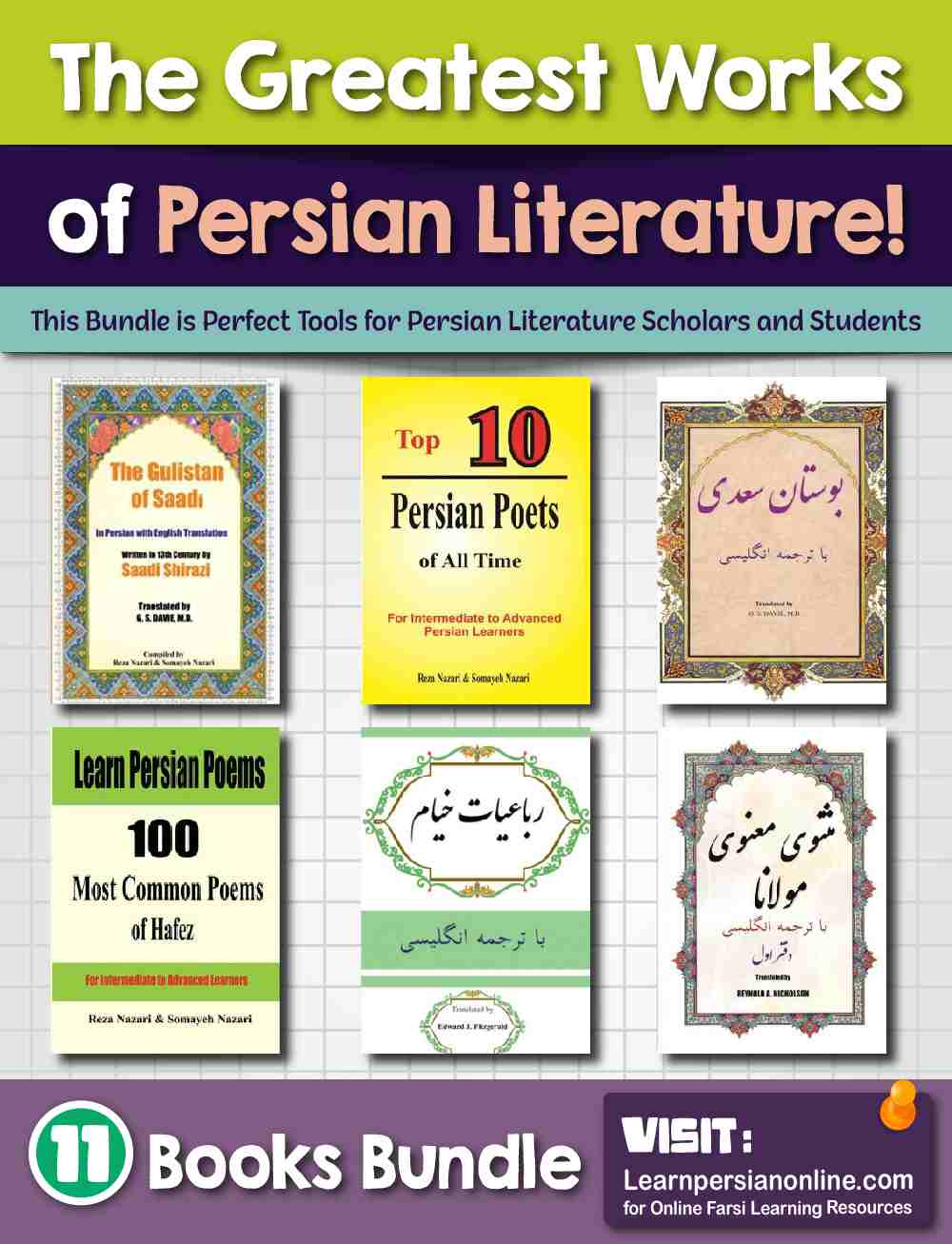
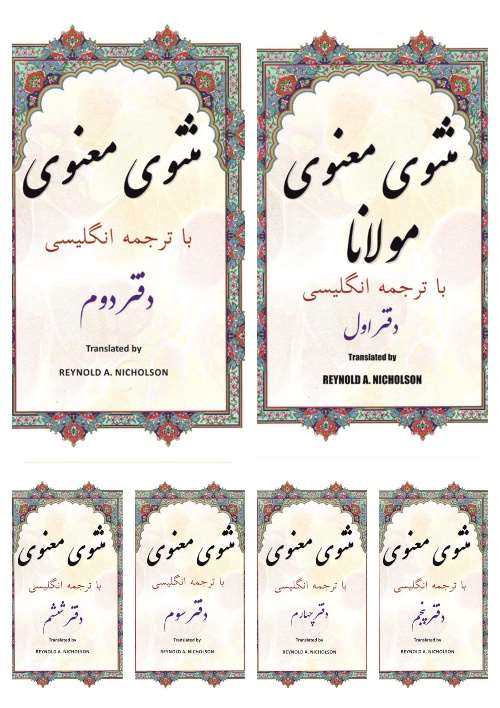
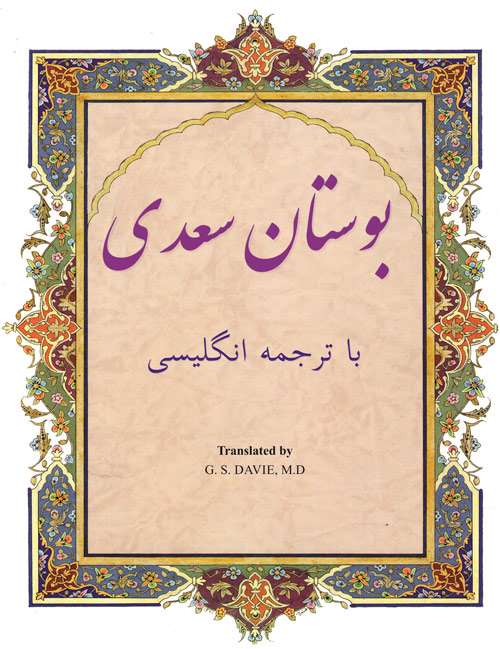
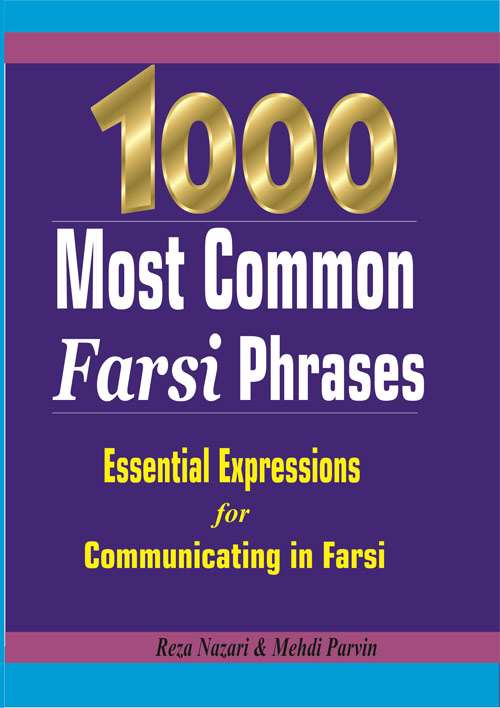
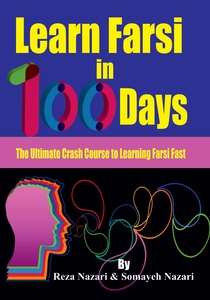






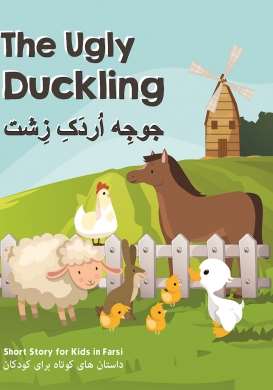
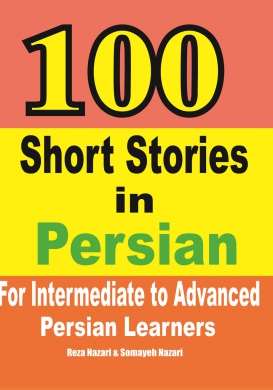
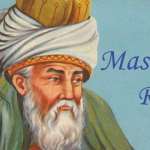
What people say about "The death of the eldest prince"?
No one replied yet.